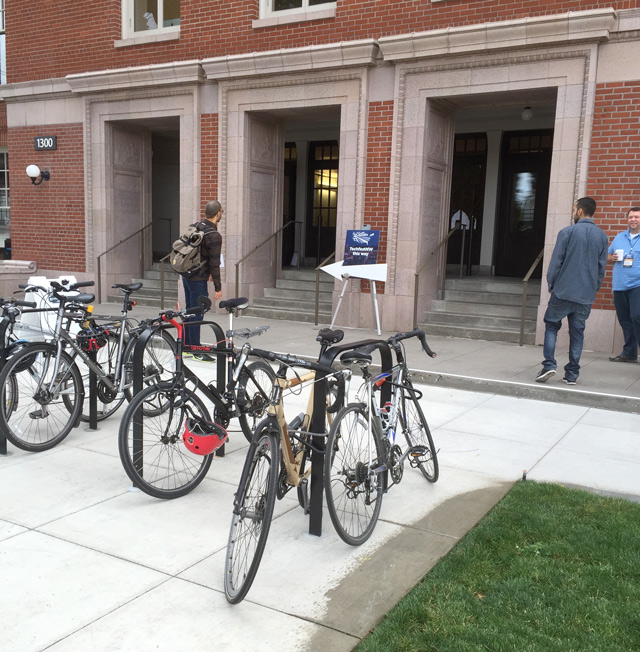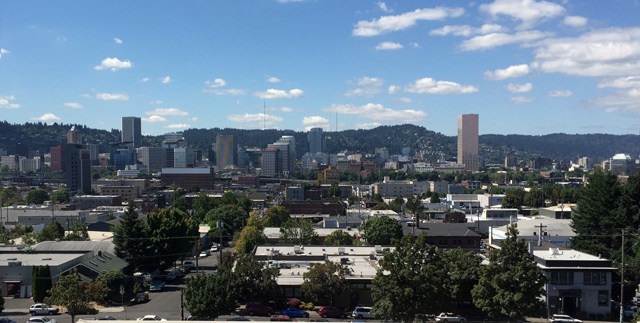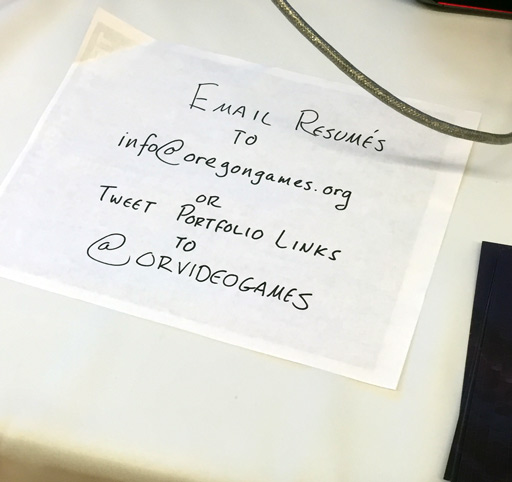TechFestNW 2015
This year I attended the fourth annual TechFestNW at Revolution Hall in Portland, Oregon. Themes at the two-day event were virtual reality, augmented reality, robotics, drones, and the future of technology. Other topics included the sharing economy, diversity in the tech industry, and tech body modification as in cyborg. Revolution Hall is the newest music venue in Portland residing within the former Washington High School building which includes office space. The Roof Deck lounge provides views of downtown Portland. Located near major bike routes and quiet streets, Revolution Hall turned out to be a pleasant location with easy access for Portland’s many bike commuters working in technology. I came most interested in augmented reality, but I left impressed by the presenters on the future with drones and robots. Below I review my two favorite sessions, John Markoff on robots and Jonathan Evans on drones. TechFestNW offered a wide range of topics, good food and drink, games, music, and plenty of opportunities to meet or squeeze in some work.

The entrance to Revolution Hall was one of several locations to park bikes around the building. Late arrivals locked their bikes to a nearby steel fence.

The Roof Deck at Washington High School offered a view of downtown Portland on a beautiful day.

Several businesses had tables setup in the hallway surrounding the auditorium with demonstrations or recruiting information, but not all were physically present. 360 Labs had a demo setup for attendees to try on their glasses for a virtual tour. Another thing that caught my eye during the event was a brief video clip of Nixie, a tiny drone wearable that follows the person to get action photos and video making a selfie-stick look like, well a cumbersome stick. Nixie won Intel’s Make it Wearable Challenge in 2014.
Markoff on robots in our future
Friday’s morning session included John Markoff, a journalist for NY Times and author of recently released, Machines of Loving Grace: The Quest for Common Ground Between Humans and Robots, in a Q&A session with journalist, G. Pascal Zachary. The fun conversation included mentions of robot companions, virtual pets, digital assistants along with sharing a couple of video clips of robots in research. Markoff considers Apple’s Siri, Microsoft’s Cortana, and self-driving cars as robots already becoming part of our lives. It won’t be long before cuddly plush toys become smarter, able to read books to children and teach them new languages. Natural language recognition is growing so rapidly that digital assistants will soon be talking conversationally with us. And we’ll begin to show empathy towards our robot friends like we do other persons and pets.
One concern about robots is job displacement. Certainly many professional drivers will lose their jobs along with electronics assemblers. What new jobs will arrive? Naturally new products and technology bring new opportunities. Markoff reminds us that Istagram didn’t kill Kodak, but that Kodak killed itself. He went on to point out the possibility that robots may arrive just in time to save our aging society. Everything is fine as long as society can find meaningful things for people to do.
Of course, the topic of AI as a threat mentioned by Elon Musk (The Guardian) and others was brought up. Having something like Asimov’s rules for robots would never work since an enemy wouldn’t build their robots to follow them. “Relax, the Terminator Is Far Away.” Markoff shared a video clip from a DARPA challenge of robots attempting to open a door and falling over. More concerning is security of devices such as (human) hackers taking over cars remotely (Ars Technica: Highway to hack).
Drones taking to the skies
Jonathan Evans, CEO of Skyward and longtime pilot presented drones as the next era of aviation. Evans shared some fun history on aviation such as the first rules for aviators which included amusing rules like always carry a hanky to clean goggles and if another plane is nearby, get out of the way. Skyward helps commercial drones fly safely around cities and track operations. Evans points out that, just like in history, as more drones take to the skies we’ll need to adjust our aviation regulations to fit. Clouds of dark drones may become a problem for future drone makers to defend against much like jet engines must be designed to handle birds. I was equally impressed by Evans’s informative presentation as his relaxed, fun delivery style.